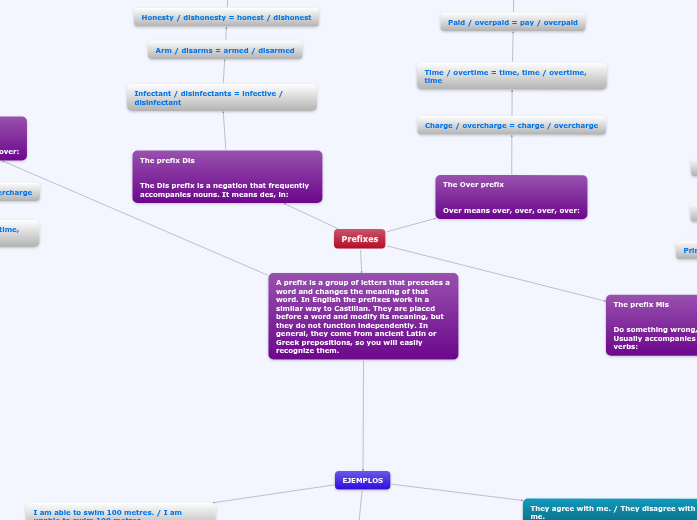Prefixes
A prefix is a group of letters that precedes a word and changes the meaning of that word. In English the prefixes work in a similar way to Castilian. They are placed before a word and modify its meaning, but they do not function independently. In general, they come from ancient Latin or Greek prepositions, so you will easily recognize them.
EJEMPLOS
I am able to swim 100 metres. / I am unable to swim 100 metres.
What he said is completely logical. / What he said is completely illogical.
They agree with me. / They disagree with me.
The Over prefix
Over means over, over, over, over:
Charge / overcharge = charge / overcharge
Time / overtime = time, time / overtime, time
Heat / overheat
Grown / overgrown
The prefix Dis
The Dis prefix is a negation that frequently accompanies nouns. It means des, in:
Infectant / disinfectants = infective / disinfectant
Arm / disarms = armed / disarmed
Honesty / dishonesty = honest / dishonest
Ability / disability = ability / disability
The prefix Mis
Do something wrong, wrong, wrong, wrong. Usually accompanies without script to verbs:
Print / misprint = print / commit errata
Take / mistake = take / mistake
Lead / mislead = led / poorly led
Treat / mistreat = treat
The Over prefix
Over means over, over, over, over:
Charge / overcharge = charge / overcharge
Time / overtime = time, time / overtime, time
Paid / overpaid = pay / overpaid
Sleep / oversleep = sleep / oversleep
